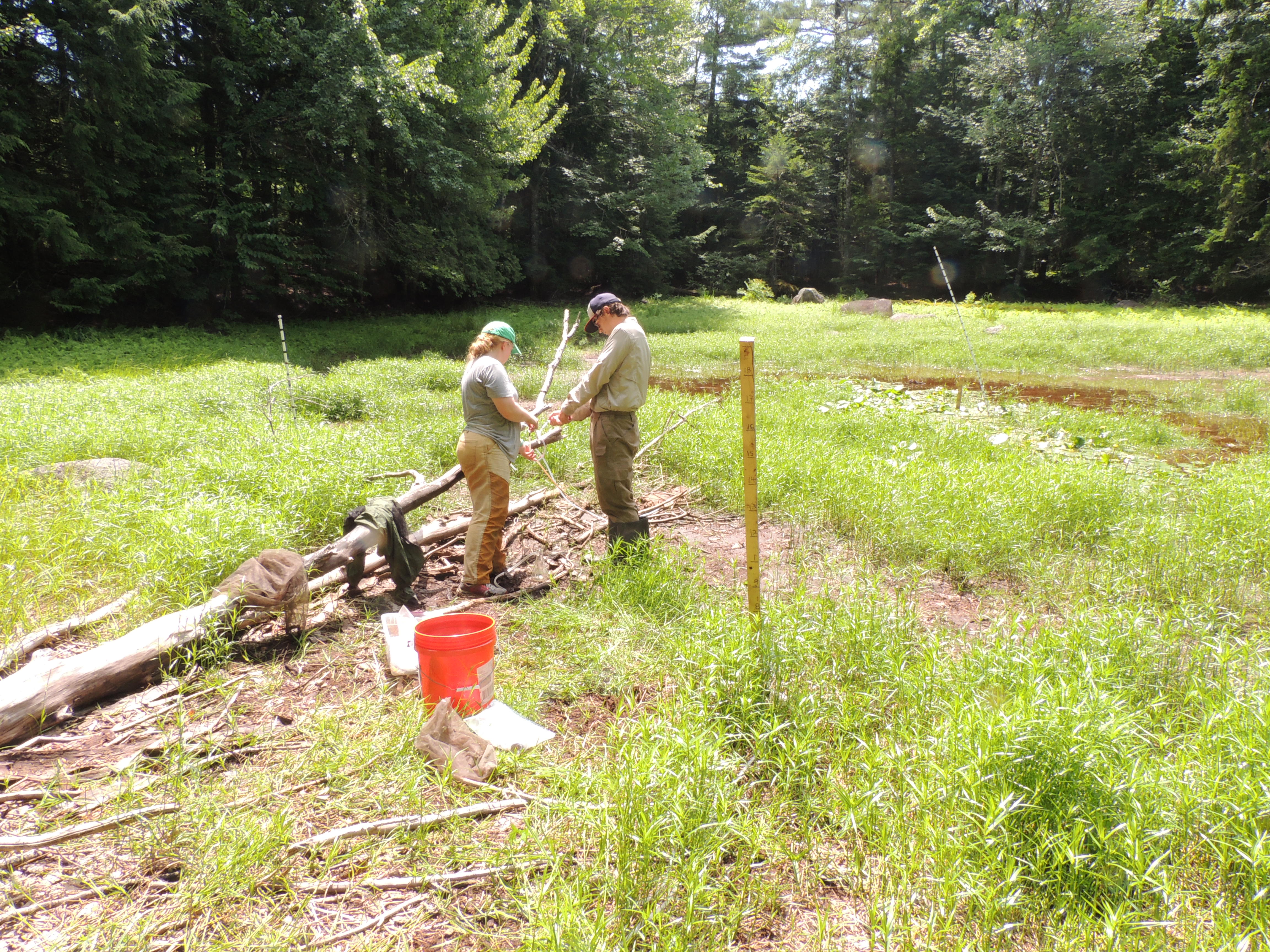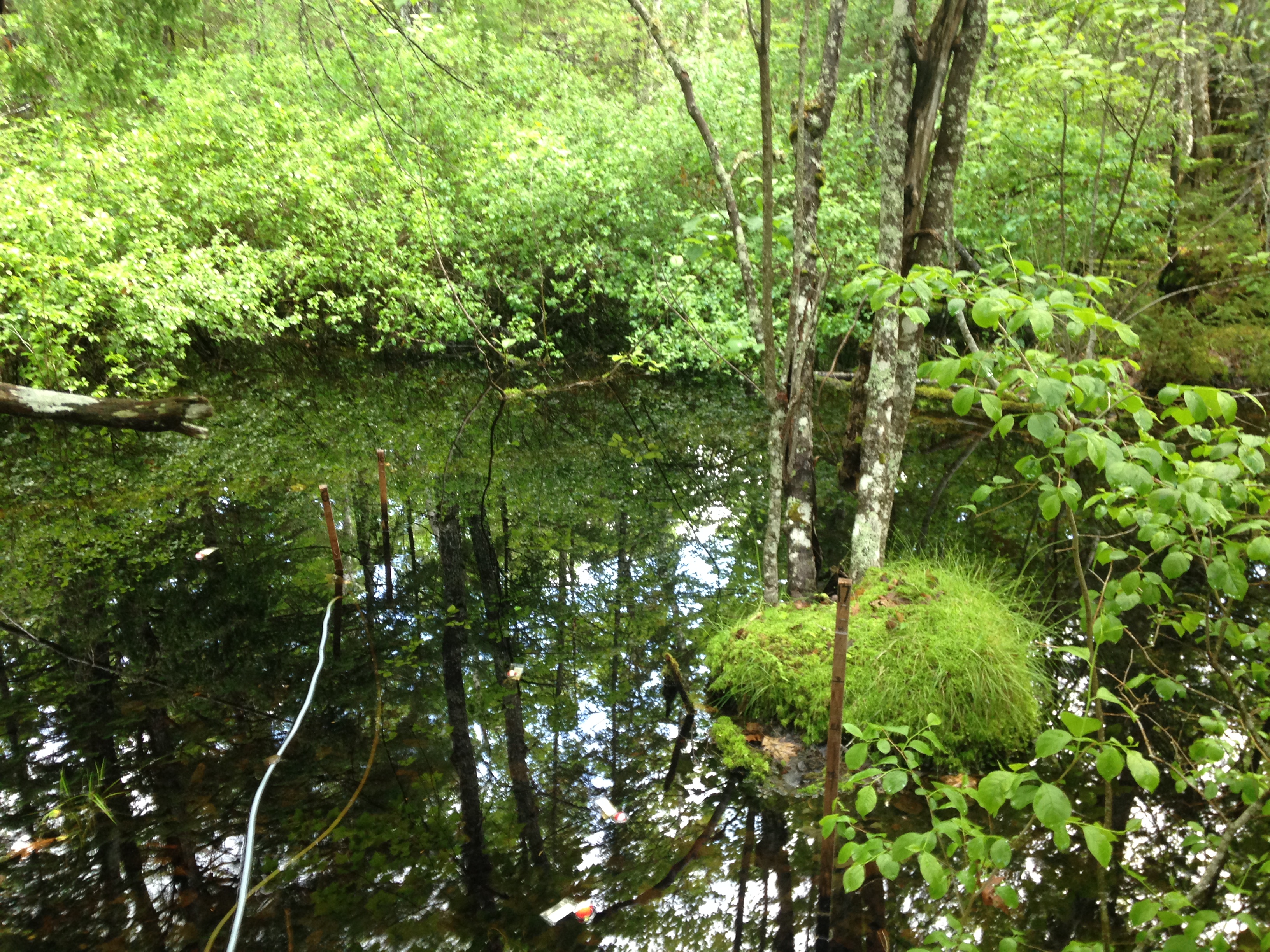 Lydia Kifner, MS Student; Department of Civil and Environmental Engineering
Lydia Kifner, MS Student; Department of Civil and Environmental Engineering
I spent a good part of my summer out at vernal pools conducting field work at four vernal pools in Bangor and in Down East Maine. Beginning field work was a daunting process, as I had never planned a water sampling regime before, and this meant that there were dozens of things I didn’t know, and even more things I didn’t know I didn’t know. At the beginning, I couldn’t imagine a dull sampling day; they always seemed too exciting and filled with crises. Over time, my field work routine became familiar, and each day I began to feel a mix of “I am so lucky to work outside today” and “this heat and all these mosquitos are brutal, I can’t wait to be back in the air-conditioned lab.”
A few things stand out to me from working in the pools over the course of the summer. One was that organization is key to successful field work. If I prepared the day before by pre-labeling my vials, triple-checking that I had all the equipment and sticking extra tape, bottles, or anything else we could possibly need in the bag, the day of sampling was much less stressful and much more enjoyable. There will always be things that go wrong during field work that you can’t control for, such as rodents nibbling holes in your sample collection tubing or vacuum pumps breaking (to name a few that happened more than once this past season). Preparing for the things we could control made dealing with things that we couldn’t control go much smoother. It’s always better to be over-prepared than underprepared!
 Working on the water chemistry of vernal pools can trick me into focusing on a very discrete part of the pool ecosystem. Being out in the field for four months opened my eyes to the diversity of the environment and how many organisms depend on and use the pools. Throughout the summer we encountered many interesting animals—some that were expected like green frogs, wood frog metamorphs (so small!) bullfrogs (so big!) and others I did not previously associate with vernal pools. We saw painted turtles, gray tree frogs, ringneck snakes, snowshoe hairs, and we heard countless birds. Vernal pools attract many species in Maine, and this summer I was lucky to see a variety of great animals during the field season.
Working on the water chemistry of vernal pools can trick me into focusing on a very discrete part of the pool ecosystem. Being out in the field for four months opened my eyes to the diversity of the environment and how many organisms depend on and use the pools. Throughout the summer we encountered many interesting animals—some that were expected like green frogs, wood frog metamorphs (so small!) bullfrogs (so big!) and others I did not previously associate with vernal pools. We saw painted turtles, gray tree frogs, ringneck snakes, snowshoe hairs, and we heard countless birds. Vernal pools attract many species in Maine, and this summer I was lucky to see a variety of great animals during the field season.
Field work is not easy work, but it is worth it. There is something very satisfying about having a physical product at the end of your hard work. Though exhausted at the end of each day of collecting and sample processing in the lab, it was nice to know that my efforts were going to move my research forward. The water samples I collected will produce data on water chemistry of the pools over the summer. The experience of working out in the pools will give context to my data, and help me understand the ecosystems even further.
